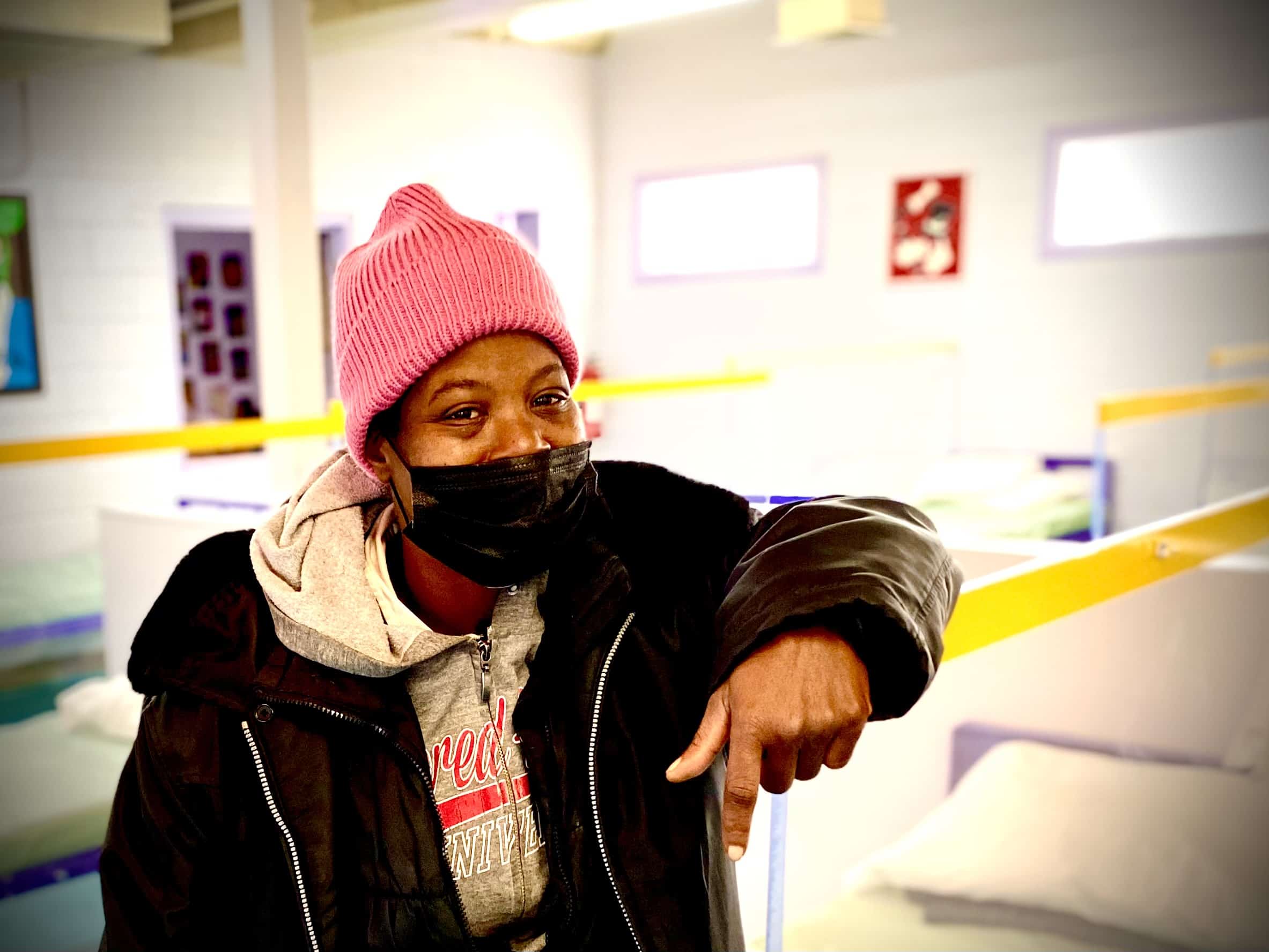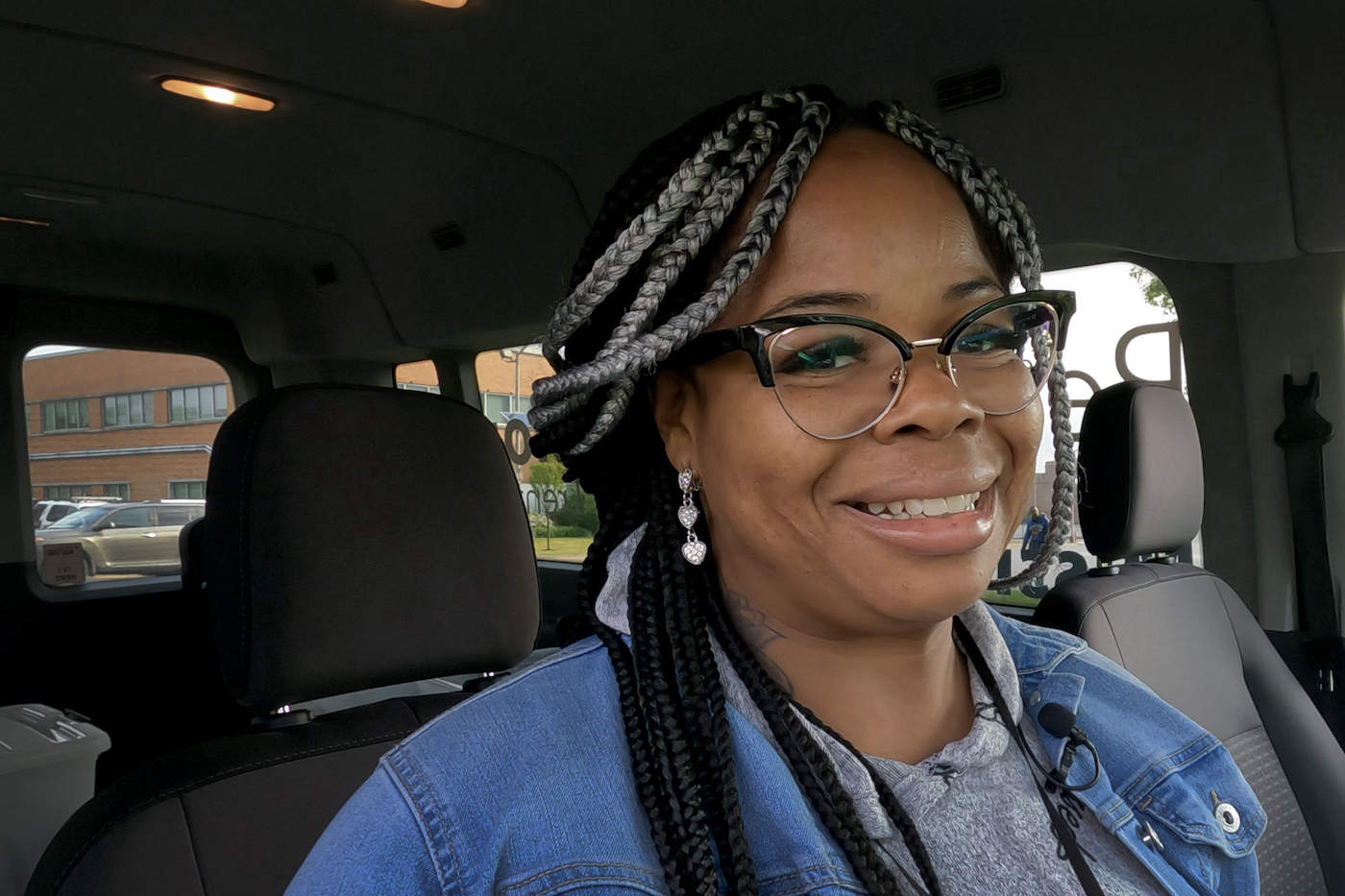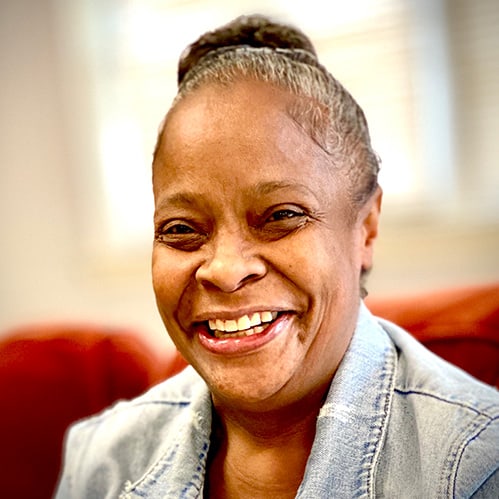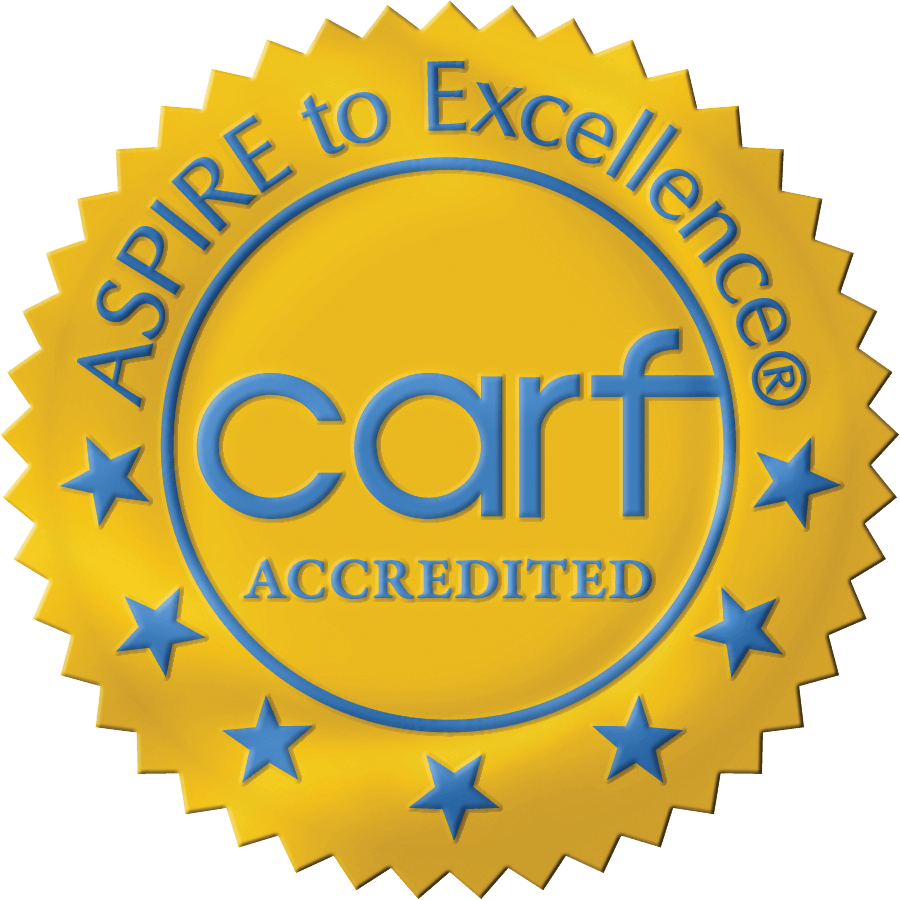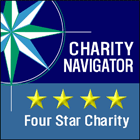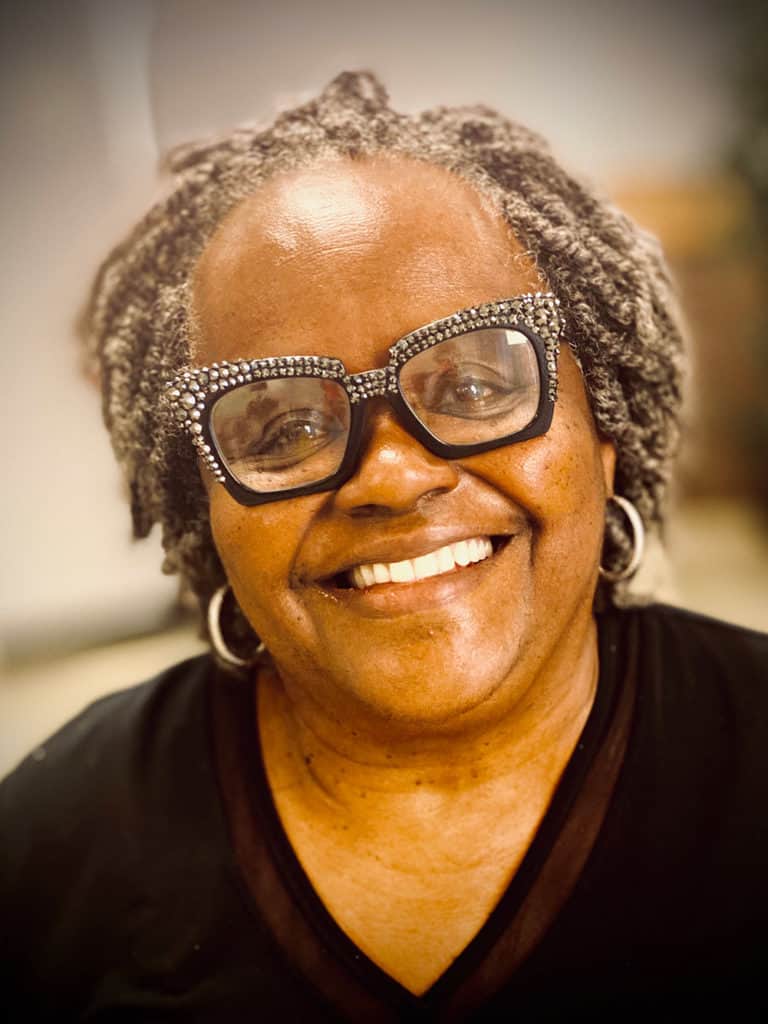
Thomasine Gaines, a certified peer recovery specialist, is the first person that a pregnant or postpartum woman who is using opioids speaks to when she calls for help to For My Baby and Me, an innovative program in which The Rescue Mission of Trenton has partnered with Capital Health, HomeFront, Catholic Charities and Trenton Health Team to provide long-term recovery as well as ongoing medical care and support for women and their children.
Thomasine has lived experience in overcoming poverty and addiction that she draws upon daily to courageously and compassionately connect with, support and, at times, challenge women who are pregnant or postpartum, addicted, and seeking help.
Thomasine was introduced to heroin two months before graduating from high school by a guy who was ten years older than her. “He pulled out a bag of white powder and asked me to snort it. I did, but I told him I didn’t like it. Then a week later, he said, ‘I’ll shoot you up and see if you like that.’ And I did.” She paused, then said. “I had no self-esteem. I didn’t like anything about myself. And heroin brought me out of my shell. I was not afraid anymore. I didn’t like who I was. But it didn’t matter because I was high.” Soon, she was shoplifting to support her expensive habit. Then she spent six months in jail, and ended up in the state hospital for a month, where she was hearing voices that she could not get out of her head.”
Her twenty-year road to recovery began when her twelve-year old son Jamal said, “Mommy, come on. Let’s go to a meeting.” Shaking her head at the memory, she added, “We lived in public housing in the city, at the time. My husband and I were both addicts. My son saw me and his father drunk and high every single day. Yet, for some reason, my son thought he could help me. We walked to a meeting, and they asked if anybody was there for the first time. And Jamal raised his hand and said he was there with me. Then he said, ‘My mommy needs help.’ And he asked if someone could help me.” Recalling, like it was yesterday, Thomasine added, “He went to meetings with me every day for 90 days in a row. He would come home from school and we’d walk to a meeting. He was afraid I would not go. Then we would walk to several meetings until it was late at night. That’s when we would go home where my husband was unconscious in a recliner. My son and I both got our 90-day pins, then he said, ‘Mommy, you can do this on your own now.’”
We walked to a meeting, and they asked if anybody was there for the first time. And Jamal raised his hand and said he was there with me. Then he said, ‘My mommy needs help.’ And he asked if someone could help me.”
Fast forward to today and Thomasine readily admits to each of her clients that she “has been there,” that she knows what they are going through, that she has been poor and addicted, and that recovery is possible. And because she is so open, young women who are pregnant or postpartum find it easy to relate to and trust her. They see her as a role model for overcoming adversity.
In the past two years, Thomasine has taken nearly three dozen young women through the program. Hers is the first voice they hear when they call the help-line at For My Baby and Me. Sometimes the voice on the other end is hesitant, other times it is frantic. Either way, because of her lived experience, Thomasine knows how to connect with such calls for help. She listens, letting them know she is there for them. In addition to the help-line, she gives them her cell phone number and her number at The Mission. If they are open, she’ll leave immediately to meet them – sometimes in an abandoned building, other times at their home. Then, if they are willing, she will take them to Catholic Charities for evaluation and outpatient treatment often including medication assisted therapy. If they are not ready, she stays in touch, knowing that recovery can only start when the time is right.
Mary Gay Abbott-Young, Chief Executive Officer of The Mission, said, “Thomasine has overcome daunting challenges with grace and dignity that constantly amazes me. More importantly, she shares the lessons she has learned freely, mentoring young women who daily are challenged the daunting risks and uncertainty of poverty, addiction, violence, loss, grief, despair and trauma.”
She added, “Because they know of the depth of Thomasine’s experience, young pregnant women who are addicted feel an immediate level of trust with her. She also brings an unusual combination of connecting on a deep level, while being able to challenge someone, at just the right time, to step outside of their comfort zone.”
Because they know of the depth of Thomasine’s experience, young pregnant women who are addicted feel an immediate level of trust with her.
One of the core beliefs that Thomasine she lives and encourages others to live, is her unwavering commitment to the belief that everyone can recover. “They may not be ready, willing or able the first time they call. Or the second time they meet with me. But I will stay in touch and be there for them when they are ready. If not this time, then the next time,” she explained.
That belief and hope in others comes from a very deep place inside of her. She understands what life is like on the streets, having been there. “I have a deep hole in my arm from shooting heroin,” she shared. “It is an insidious and powerful drug that will capture you and change everything about you. The craving has your mind all the time. And you’ll do all kind of low down stuff, stealing from your family, selling your body, anything just to have that drug inside of you,” she said, then added, “I know. I’ve been there. So when I talk with these young women, they know I’m not judging them. I come from a place of understanding. And I am only there for one reason – to help them and their baby.”
She will then seek to meet them wherever they are – whether it is at the train station, a Dunkin’ Donuts, an abandoned building or their home – with the goal of helping them get into treatment if they are ready.
Because Thomasine has been there – and finds her purpose in helping others find their way back – she can connect with these women where they are – whether they just need someone to talk to, want to consider treatment, are in the early stages of recovery, are relapsing, or don’t even know their options.
How deep is the connection that Thomasine makes with these young women who are pregnant or postpartum and addicted?
She has helped each of them to weather their own personal storms. She can tell you inspiring and sometimes heartbreaking stories about each and every one of them. They can tell you that she has been a calm voice of reason and a source of hope in times of desperate uncertainty. They can tell you that they sometimes called at three o’clock in the morning when they had nowhere else to turn. And they have invited her to several baby showers, a few weddings, and asked to cut the cord for Michael, a child who is now two years old, healthy, thriving, and living with his mother, who is in recovery.
